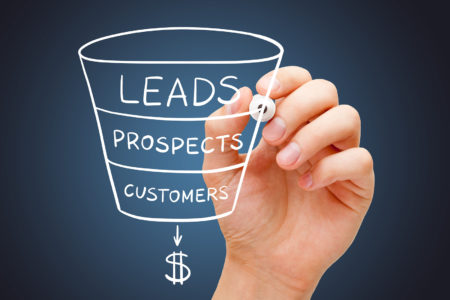Ecommerce and online marketing in general is full of buzz words and technical terms. This guide will explain some of the commonly used terms in the world of selling online.
Ecommerce
Electronic commerce or ecommerce is a term for any type of business, or commercial transaction, that involves the transfer of information across the Internet.
Conversions
A conversion is the ‘conversion’ of a site visitor into a paying customer. If you are trying to ‘increase conversions’ then you are basically getting more people to buy once they are on your website.
SEO
Search Engine Optimisation. There are two type of SEO. On-site and off-site. On-site involves optimising the content, structure and coding of your website to make it as attractive as possible to search engines. This results in a higher search engine ranking. Off-site usually involves getting other websites to link to your site. Backlinks are a major factor in search ranking. It can also involve promoting your site and blog posts on social media. Registering your site on directories and getting online reviews also help with SEO.
SEM
Search Engine Marketing. This is paid advertising that is featured along with search results. You may have noticed the adverts across the top and down the side of Google search results. This a can be very effective way to get traffic. However some keywords can be very expensive to buy ads for. And it pays to have a landing page or sales funnel in place to capitalise on the increased traffic.
Open Source
Open source software is software where the code base is ‘open’. The copyright is usually GPL or Public Domain meaning anyone can use or copy it for free. Open source is built and maintained by contributors from around the world.
Keywords
Keywords are works that people will use to find your ecommerce store or products. For example if I sell ice-cream then obviously ‘ice-cream’ is a keyword. Others might include ‘dessert’ , ‘sorbet’ , ‘vanilla’ , ice-cream cone’ etc. You can buy SEM ads that target certain keywords. You can also optimise your webpages to rank well in searches for certain keywords.
Sales Funnel
The path that potential customers pass through before making a purchase. Having a well thought out sales funnel will make the most of paid website traffic.
SSL Certificate (HTTPS)
The normal protocol from transmitting data to and from websites is HTTP. The secure version is HTTPS. To encrypt data websites use SSL certificates. Any serious ecommerce store needs to have an SSL cert installed.
Affiliate Marketing
A concept of performance-based marketing where you, the online store merchant, partner with online publishers to promote and endorse your products so they can send visitors towards your website. These online publishers get paid for every website visitor or every sale generated from their promotion.Analytics
Statistical data on your website traffic. With analytics you can see how many visitors your website get, which pages are the most popular and how long users spend on those pages.
Billing address
The address where the customer’s credit card statement is mailed to.
Bounce rate
The percentage of people who visit one page on your website and leave without clicking on anything.
Bundling (or Product Bundling)
A marketing concept where the business offers several related products or services and sells them as one package solution, often at a reduced price.
Call-to-action
An advertising and marketing concept where you give an instruction to your target audience to persuade them to take immediate action. Examples are “visit now”, “learn more now”, “subscribe now”, and “get access now”, among others.
Cart abandonment rate
An online shopping metric which shows the ratio of number of abandoned shopping carts to the number of completed orders. An abandoned shopping cart is when a user places products on his virtual shopping cart but does not complete the order.
Cross-selling
A marketing tactic where sellers present additional products that can complement, enhance or improve the main product they are selling (for example, mobile phone cover for a mobile phone purchase)
Email Marketing
Sending marketing via email. Email marketing can be a monthly newsletter, emails notifying customers of new products or specials deals.
Transactional Email
This is email send to customers confirming sales or shipping.
Payment Gateway
The service that processes online payments. Popular payment gateways are PayPal, DPS and eWay
Inventory
The stock of products for your online store.
Merchant Account Provider
A type of online bank account that allows merchants to accept debit and credit payments.
Mobile Commerce (mCommerce)
The use of wireless electronic mobile devices such as cell phones, smartphones and tablets to buy and sell products and services online.
PCI Compliance (Payment Card Industry compliance)
A set of requirements that ensures a safe and secure environment for every business which stores, processes or transmits credit card information.
Shopping Cart
A virtual representation of a shopping cart which lists the items that the customer intends to buy from the online store.
Upselling
A sales technique when you offer your customers the chance to purchase upgrades (better features, better specifications, more volume) or to get the more expensive version of what they’re buying so you can maximize the value of their purchase (higher price).
FREE VIDEO TRAININGHow to increase sales and profit for your WooCommerce store
A simple 5 step plan to increase sales and profit for your WooCommerce store without wasting money on ads


